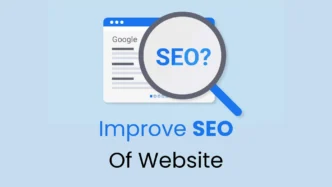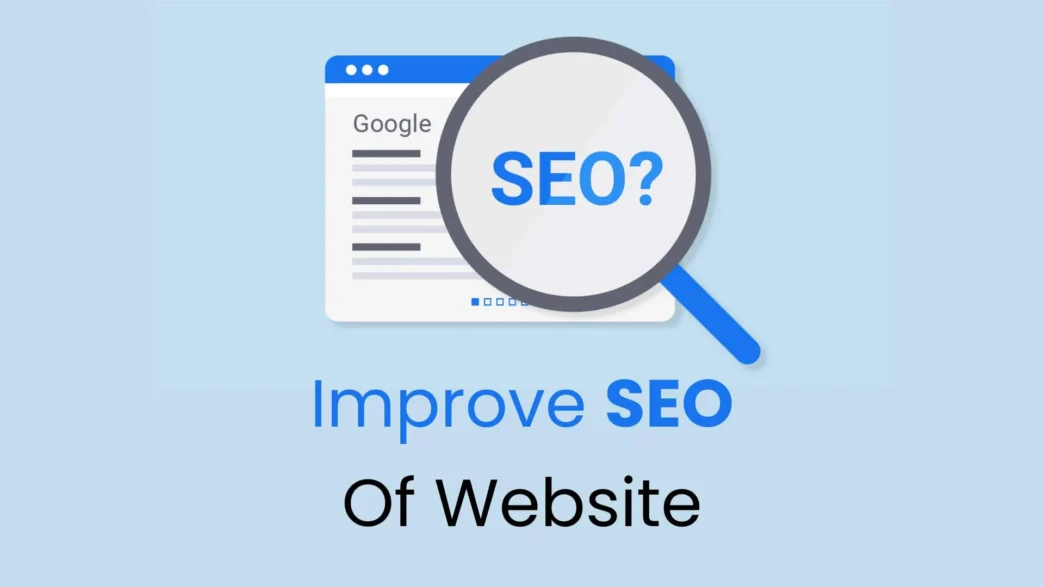Search Engine Optimization (SEO) is a complex digital marketing strategy that aims to improve the visibility and ranking of a website on search engine results pages (SERPs). This complex process entails a variety of approaches and practices to ensure that a website not only becomes more discoverable but also more appealing and useful to consumers.
Optimizing a website’s technical configuration is an important part of SEO. This involves increasing site speed, making it mobile-friendly, and guaranteeing correct search engine indexing.
Technical SEO ensures that search engine crawlers can browse and understand the structure and content of a website.
Another important factor is content relevance. SEO success requires high-quality, useful, and engaging content that corresponds to user search queries. Keyword research and optimization, as well as the creation of useful and interesting content.
Table of contents
Recognize Your Online Customers In Website SEO
The process of improving your website’s SEO starts with delving into the complex world of your clients’ behaviors. To truly optimize your online presence, you must first understand how customers begin their search for a specific product or service.
Stage 1: Awareness: Identifying the Problem
Imagine a scenario where a customer encounters a problem, such as a leaking tap. At this initial stage, they become aware of the issue that needs fixing. In their quest for a solution, customers typically start by using broad search terms like “leaking tap”.
Here, they seek to understand the nature of their problem and begin the information-gathering process.
Stage 2: Consideration and Exploring Solutions
Customers have a clearer understanding of their issues and are actively searching for solutions that align with their specific needs. They may refine their search by including keywords like location, product features, or product types.
Stage 3: Purchase: Making the Decision
Once customers have thoroughly considered their options and are ready to make a decision, they transition to the Purchase stage. Their search behavior reflects this certainty, as they start searching directly for their chosen service provider.
For example, they might enter a query like “ABC Plumbing” to find the specific company they’ve decided to engage with.
Make Use Of Keywords On Your Website

Keywords are the words or phrases that a customer searches for. Keywords such as ‘flowers online’ and ‘where do I buy flowers online’ are examples.
Consider how your reader might use search terms to find that exact page:
- Online master’s in Engineering Management
- What is biomedical engineering?
- Title IX education resources
- Photographing northern lights
- How do I apply for scholarships?
- When is the FAFSA deadline?
1. Several Keyword Phrases
In addition, the keywords are sufficiently similar that it is quite difficult for a website to get search engine rankings for many keyword phrases. A single page may rank for “biomedical engineering jobs” as well as “biomedical engineering careers.”
It is uncertain whether a single-page score is required for “student affairs” and “dean of students.
2. Inserting Keywords
Once you’ve chosen a keyword phrase for a certain page, consider the following:
- Can I use a portion or all of the keyword phrase in the page URL (by using keywords in folders)?
- Is it permissible to incorporate a portion or the complete keyword phrase in the page title?
Refresh Your Page’s Content Frequently

1. Blogging
Writing more keyword-rich content for your departmental news blog can also benefit your search engine rankings.
Blog entries can just be brief updates on selected areas of interest. When it helps the reader get a better picture or more information about a topic, interlink your related CMS web pages and blog entries.
2. Metadata
When designing your website, allow a space between the head> tags for metadata, or information about the page’s contents. If you have a CMS site established by the UMC web team, this data will be pre-populated for you.
metadata In digital content, the page title, which shows at the top of a web browser on websites that use a Content Management System (CMS), is generated automatically by our web development team.
3. Description Metadata
Description metadata is the textual description that a browser may utilize to return the title results of your page search. A good meta description will usually be two whole phrases. Although search engines may not always use your meta description, giving them the option is critical.
4. Keyword Metadata
Search engine rankings are a practice that is rarely, if ever, used. However, it is recommended that you add your known keyword phrases to your keyword information.
It’s a good idea to include a wide range of terms in this metadata. In general, strive for a total of 3 to 7 phrases of 1 to 4 syllables.
Get Links From Other Websites For SEO
Moreover, when it comes to determining the ranking of your web pages, search engines rely heavily on the network of links connecting your site to others across the internet.
In essence, these links are akin to digital endorsements, providing search engines with valuable insights into the accuracy, relevance, and overall utility of your content.
- Relevance Matters: Referrals from websites within your niche or industry are precious.
- Authority Boost: Backlinks from highly reputable websites can give your site a substantial authority boost.
- Natural Link Building: Search engines have become increasingly sophisticated at detecting unnatural or considerate link-building practices.
- Consistency and Longevity: Consistently producing valuable, up-to-date content can encourage other websites to link to your pages over time.
- Monitor and Improve: Regularly monitor your backlink profile to identify any toxic or low-quality links that could harm your rankings.
Include Meta Tags In Your Material
Meanwhile, meta tags are non-visible coding aspects of your website. These tags provide more information to search engines and browsers about your website and content. Meta tags contain the following:
- Meta description: a description of what your page is about
- Title: Your page title, which is displayed in the browser tab
- Alternative text: tagged on media such as images as a text alternative to the media.
Stay Up On The Latest SEO Techniques

When rating your website, it’s critical to anticipate changes in search engine algorithms and how they use online content, especially meta tags. Maintain your proactive attitude by ensuring that:
- Keep an eye out for fresh keywords that are relevant to your products and services.
- keep up with new search habits and technology (such as the use of voice).
Conclusion
Lastly, In Search engine optimization, to provide users with an excellent experience, it is critical that your website not only look at each webpage based on the title of your page. This emphasizes the significance of writing intelligent page titles that include relevant keyword phrases.
Window and acts as the headline in search engine results, which is crucial. It is the most important piece of metadata on your website. good but also functions properly.
Finally, when you deliver a pleasant user experience, visitors will spend a longer time on your site, indicating that. Google will find that your page is relevant to search results. People who spend more time on your website have the opportunity to learn more about your company, offerings, and goods.
To maintain or improve your search engine rankings, make sure your website has a great design and user-friendly features.
FAQ’s
Search engine optimization (SEO) is the practice of developing and optimizing relevant, authoritative content. In order to assist visitors (and search engine crawlers) in finding answers to their key questions. The purpose of SEO on any particular website is to enhance the volume of relevant, high-quality content.
Publish authoritative, Relevant Content.
Regularly update your content.
Metadata.
Have a link-worthy website.
Make use of alt tags.
SEO is divided into four stages: keyword research, readability testing, linking, and marketing. While each stage is crucial on its own, you’ll get the best results if you make sure they’re all working together. Let’s look at each of these in more detail.

